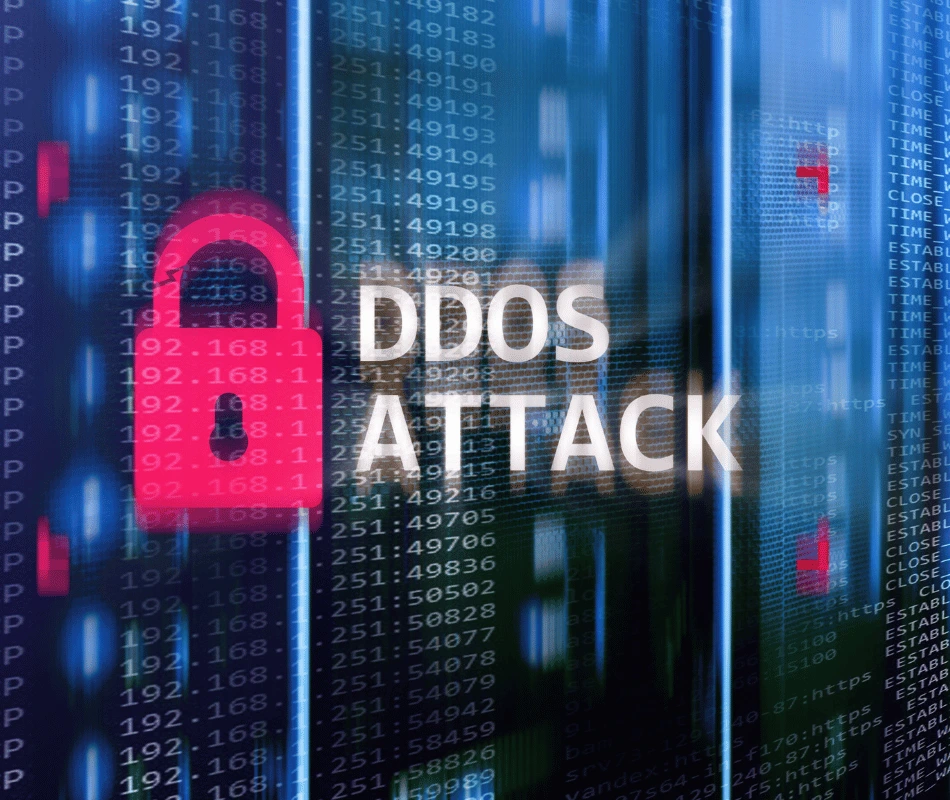In the booming age of e-commerce, and the proliferation of online commerce websites, E-commerce security becomes critical to ensuring data integrity. As well as protecting sensitive information for customers and the company. Internet stores constantly face diverse cybersecurity threats, requiring effective preventive action to protect data and counter cyberattacks. In this article, we will jointly discover the importance of e-commerce security and challenges, as well as provide some practical guidance and steps that can help you to protect your e-store from cybersecurity attacks and to maintain the integrity of online business operations. This contributes to preserving the company’s reputation, and increasing customer confidence, which leads to increased sales.
What is e-commerce security?
It is a set of security strategies that aim to protect the commercial website from any unauthorized access that may damage it. These strategies protect customers’ sensitive information and online purchasing transactions from hacking and intrusion. Which ensures a safe environment to buy, and builds total trust with customers.
What are the components of e-commerce security?
E-commerce security includes a range of components that can achieve optimal website use. These ingredients are:
Privacy:
Privacy means the refusal to share users’ sensitive information and data with anyone and for any purpose.
Integrity at work:
which means providing the correct information to customers such as prices, freight fees, etc.
Data confidentiality:
It includes the dedication and preservation of efforts in the encryption and confidentiality of clients’ data, and the website protection from all forms of theft or exploitation.
Security:
Security involves using advanced cybersecurity technologies like passwords and various authentication processes.
Compliance with general regulations:
This means that your e-store is fully compliant with e-commerce’s security and privacy standards.
Availability:
Availability means that the website is highly reliable and works well around the clock away from repeated crashes.
What are the basic compliance standards in E-commerce security?
E-store compliance standards constitute a set of rules and regulations that e-stores must follow to ensure the protection of customers’ data and financial transactions. So, these standards are intended to build trust between customers and e-stores and create a safe environment for online shopping. Each website owner must achieve one or more of the following compliance criteria:
Payment Card Industry Data Security (PCI DSS)
Any company that processes and holds payment card data must handle it according to the security regulations contained in the PCI DSS.
Consumer Privacy Protection (COPPA)
It is a law about protecting the privacy of children under 13 years of age. It has strict laws to deal with children’s data.
California User Privacy Protection Act (CCPA)
If you are selling or dealing with your products within California, it is necessary to see the security laws mentioned in the CCPA. Which relates to the rights to keep and collect users’ data about them.
General Data Protection Regulation (GDPR)
It is a set of laws to protect the privacy of individuals in the EU, ensuring the protection of users’ data.
Personal Information Protection Act (PIPA)
It is a set of laws protecting customers’ data in a range of different countries.
International Organization for Standardization (ISO)
The organization’s laws stipulate that the quality and security of products belonging to any company or store must be safe for human use.
What are the best practices for enhancing E-commerce security?
Many security practices should be carefully considered when building an e-commerce website. One of the most important practices is the following:
1. Emphasize users to use powerful passwords
It is necessary to take action to strengthen passwords for your site users’ accounts. This is done by rejecting weak passwords and suggesting passwords to users, or giving them text under the password entry box containing items that must be entered to create a strong password.
2. Hosting Security Options
The hosting provider is primarily responsible for keeping your site data. Therefore, you must choose a hosting provider that has comprehensive security techniques. As SSL certificates, for example, system reliability. In addition to strict laws regarding user privacy policies, user encryption type, multi-hop connection, and many more.
3. Using software to protect against harmful viruses
Malware is one of the most important cybersecurity challenges. Therefore, It is necessary to use different solutions that provide comprehensive protection from these softwares. These solutions highlighted Norton, ESET, Express VPN, and others.
4. Regular backup of data
Backup periodically helps avoid losing data in case of any cyberattack on the website, or even specific damage caused by malware. Therefore, you must use additions or techniques to copy your website’s databases daily or weekly.
5. Keep up to date
When dealing with WordPress, you will always notice there are updated options for Plugins of various types and objectives. Modern versions of different software are intended to fill security gaps detected in previous versions. It is therefore essential that the modernization process attaches great importance and periodically tour the website system to detect any element that needs to be updated.
6. Dealing with secure electronic payment companies
that provide strict user data protection policies, and use modern encryption techniques. This contributes to the avoidance of electronic scams and the challenges of theft of customers’ data for use in illegal business.


